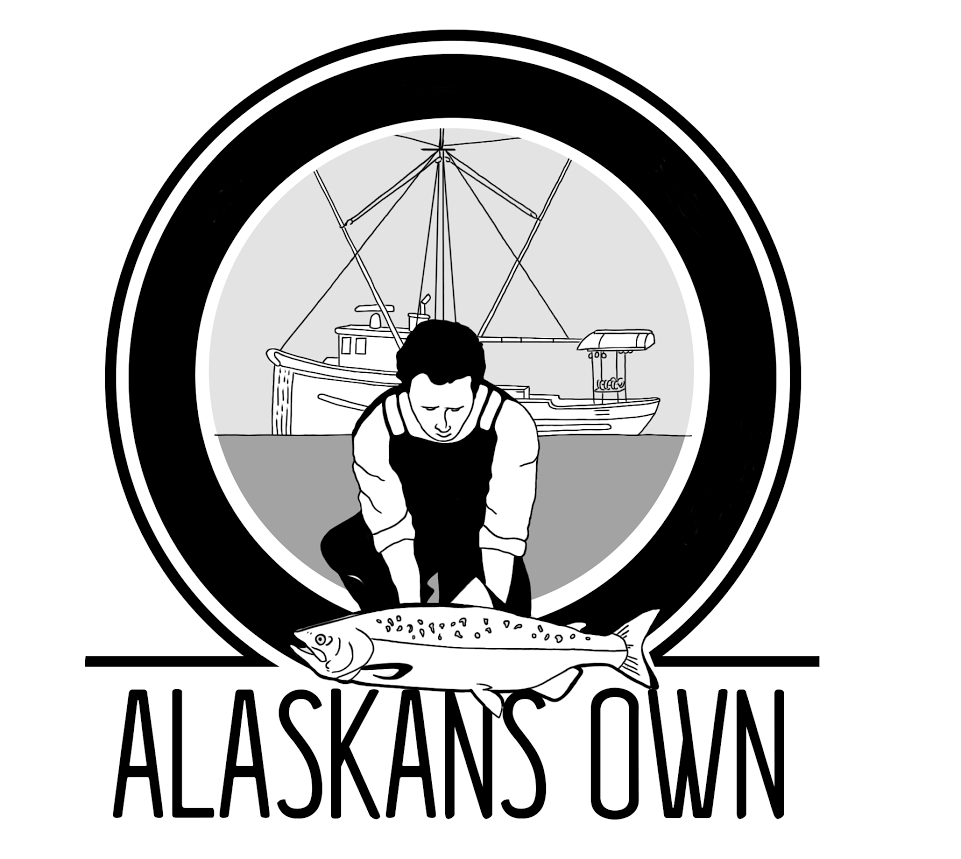Seafood Distribution Network
Delivering over 650,000 meals of seafood to those in need
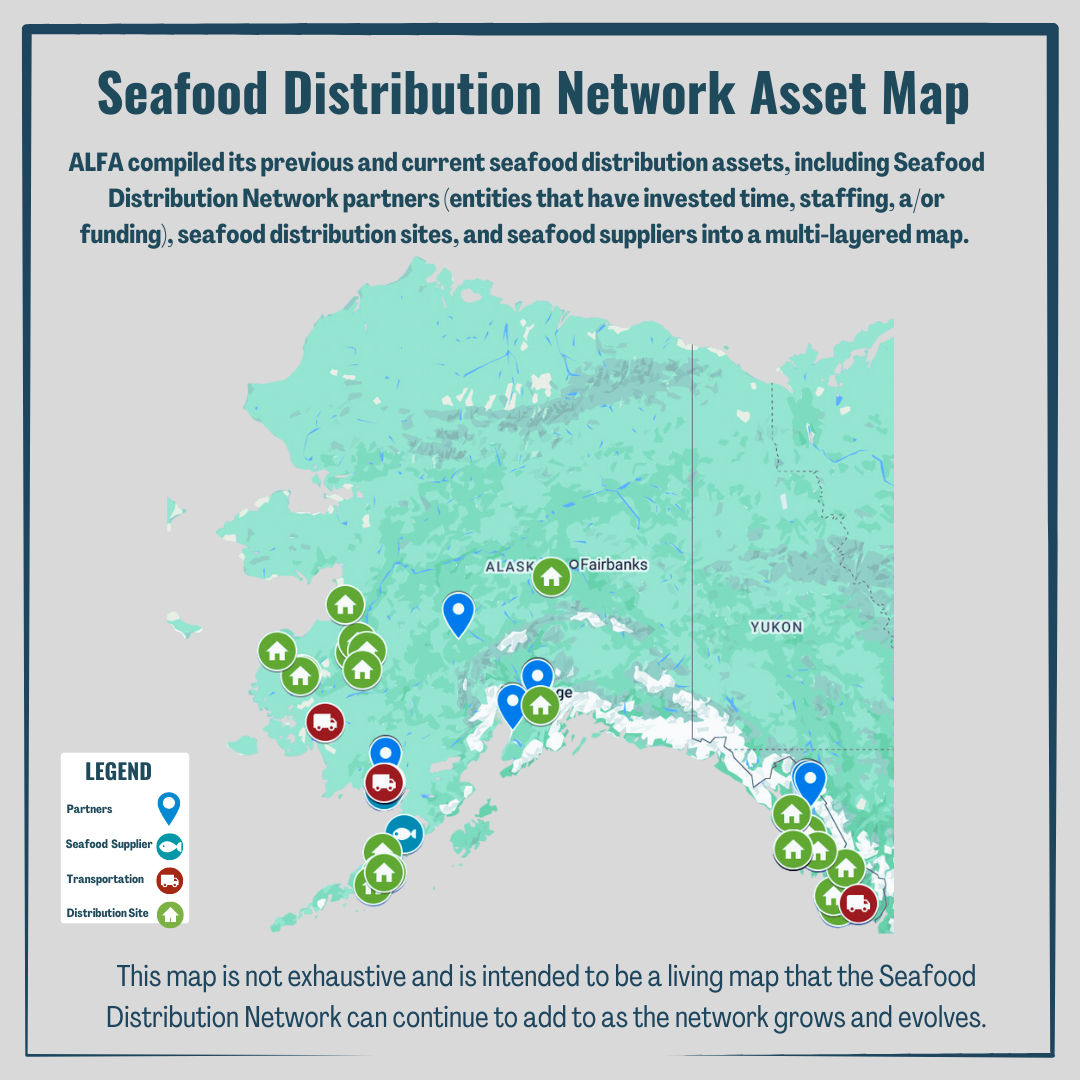
In response to the challenges of COVID-19 in March 2020, our parent organization the Alaska Longline Fishermen’s Association (ALFA) and its sister organization, The Alaska Sustainable Fisheries Trust (ASFT) started to distribute wild Alaska seafood to food insecure households, tribes, and social service organizations around Alaska and the Pacific Northwest. Since then, ALFA and ASFT have deployed more than $2.6 million to purchase and deliver more than 650,000 donated seafood meals to individuals and families facing food insecurity in more than 20 communities around Alaska and the Pacific Northwest.
These seafood distributions were made possible with the generous support of our network of funders and partners - what we call the Seafood Distribution Network. The network includes leaders in the seafood industry, transportation sector, tribes, foundations, and non-profit organizations. Thanks to their expertise, resources, and passion we have been able to build a more equitable and resilient seafood supply chain that better serves the needs of local communities.
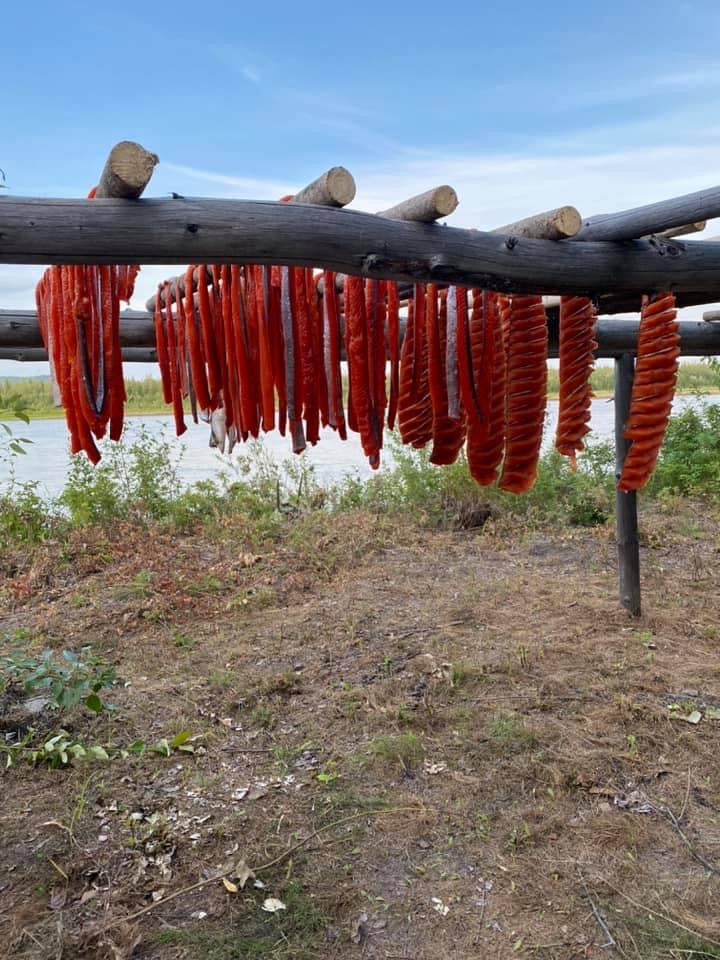
With help and donations from many partners and funders, they were able to purchase Alaskan caught seafood directly from Alaskan processors such as Seafood Producers Cooperative and Northline Seafoods. This locally caught seafood not only feeds families and communities, but also helps keep markets open for fishermen struggling to receive a good return on their product amidst the closures in restaurants and tourism due to Covid-19.
Other communities, such as Chignik, already struggling with the pandemic, also experienced diminished salmon runs and the closure of subsistence fishing by tribal entities to help protect the few fish returning upstream. Working with Northline Seafoods (which has a fleet of fishermen who are 90% Alaska Native), ALFA/ASFT coordinated the donation of 42,000 pounds of Bristol Bay round sockeye that was delivered to Tribal organizations for distribution to residents of the four Chignik Bay area communities. The tribal food pantry also provided seafood to community residents who had moved to Anchorage in search of work when local fisheries closed. These donations helped increase food security for these Alaska residents who value sockeye for its nutrition and deep cultural connections. The Chignik Bay communities wanted whole sockeye so families could process salmon as per cultural traditions—working as families and as a community to smoke, dry, and preserve as much of the fish as possible.
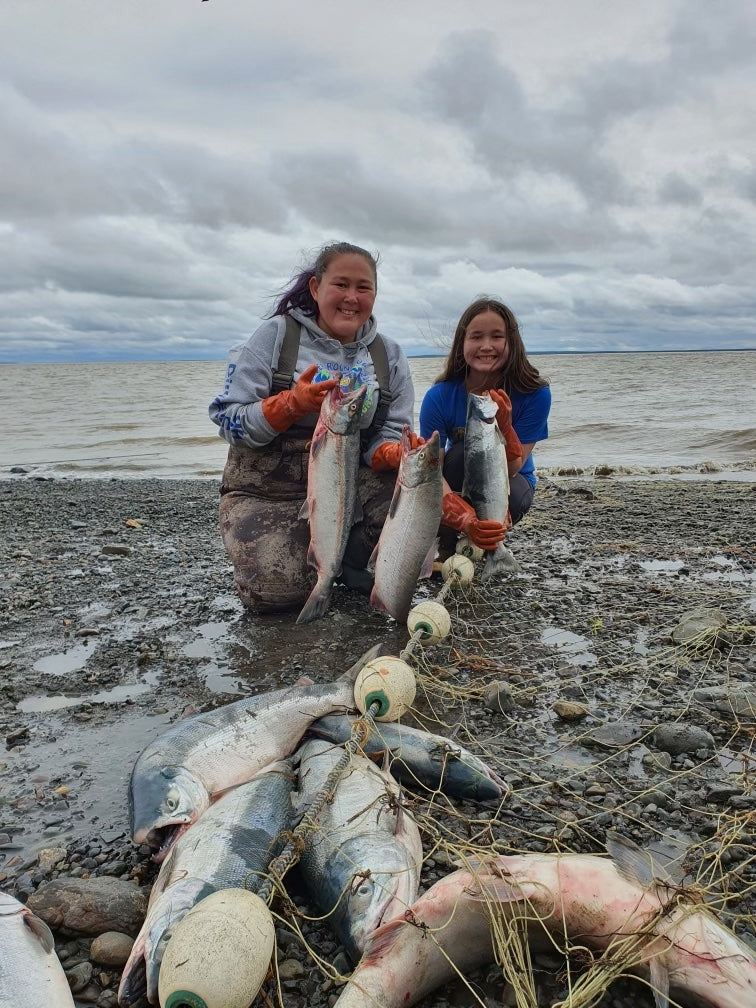
Within Southeast Alaska, ASFT/ALFA delivered over 30,000 lbs of Seafood to five communities outside of Sitka. This fish was delivered by barge to some communities and by ALFA member freezer trollers to other more remote communities.
To increase food security for local fishermen and processors, ASFT/ALFA distributed $250 grocery store gift cards, purchased with grant funds from the Alaska Community Foundation and supplemented with a $10 match per card from SeaMart Quality Foods.
We continue to deliver seafood to the doorsteps of local families identified as food insecure, working hand in hand with Mutual Aid of Sitka. Bulk donations continue to the Sitka food pantry and wellness organizations, including the Sitka Tribe of Alaska, the Salvation Army, and the Sitkans Against Families Violence shelter.
We continue to receive requests for seafood from Tribal entities and coastal community residents. While private funding for these projects was hugely appreciated in 2020, we recognize the funding will not be available in the future, but the need will continue. Climate change is reducing ocean productivity and stressing salmon runs in the Gulf of Alaska; we anticipate both commercial and subsistence salmon harvests to decline as a result.
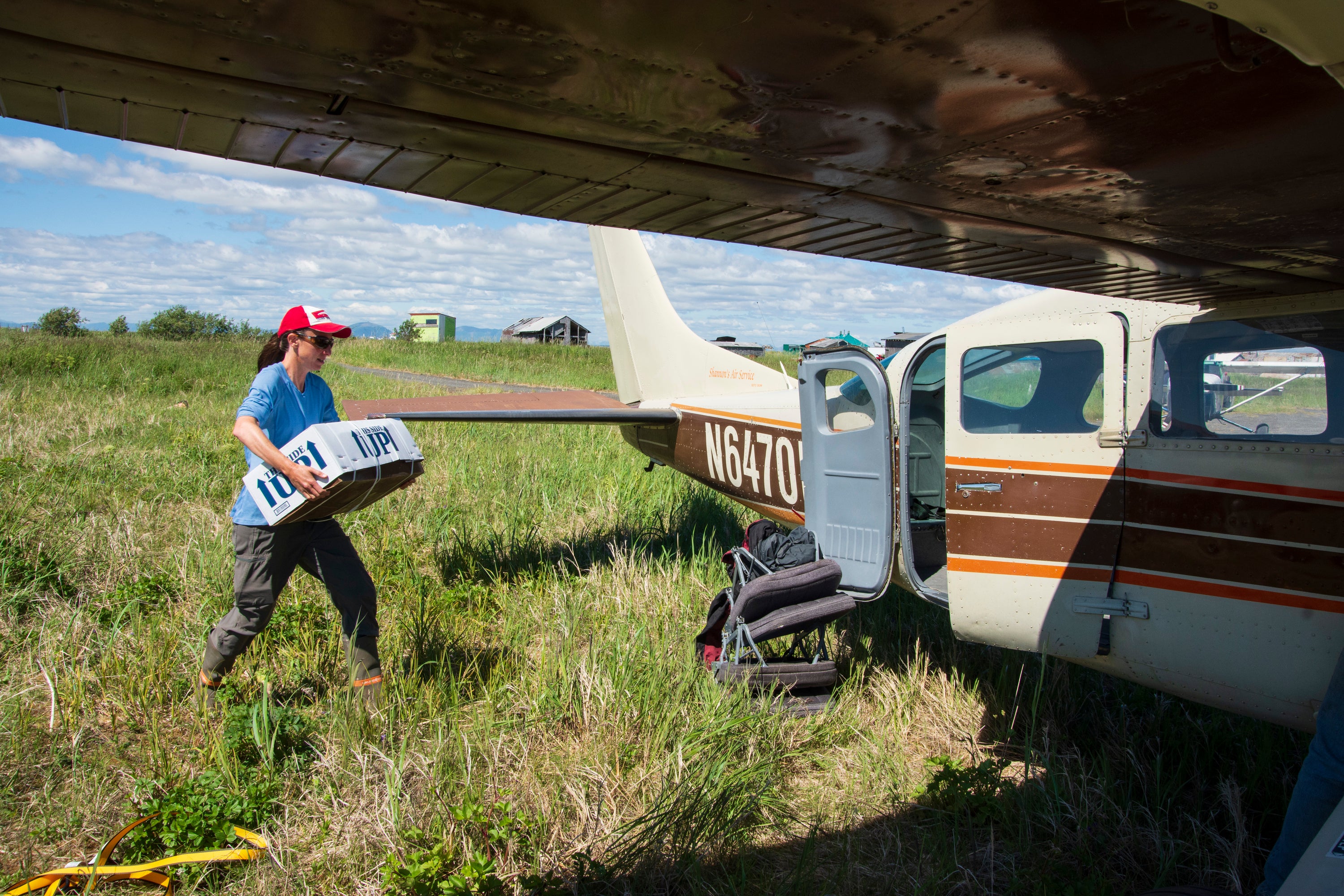
The pandemic has highlighted the need to increase regional food security overall and to increase US consumption of US seafood in particular. Seafood is highly nutritious, has a lower carbon footprint than other forms of protein, and, if purchased from community-based fishermen, seafood purchases will help rebuild coastal economies hard hit by the pandemic and climate change. The effects of Covid-19 on the fishing industry were felt state-wide and an integral part of this program has also been to educate and inform local, state, and national leaders on the needs of those who are food insecure within our Alaskan communities.
We continue to seek and provide donations for those in need and thanks to many of you who have purchased seafood donation boxes through our website or donated through PayPal.
From 2021-2023 with funding from the USDA Regional Food System Partnerships (RFSP) program, ALFA conducted a 2-year planning process for its seafood distributions. During the RFSP planning process, ALFA evaluated its previous seafood distributions and assessed the feasibility of growing and sustaining the Seafood Distribution Network. Learn more about ALFA’s RFSP planning process and proposed next steps for the Seafood Distribution Network in our Summary Report.
100% of Alaskans Own profits support programs such as the Seafood Distribution Network and fishery conservation programs.
